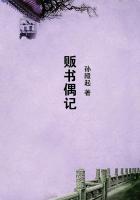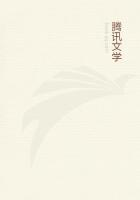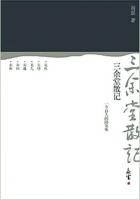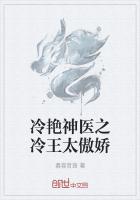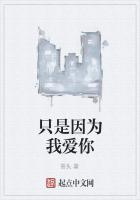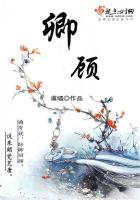but our highly-strung mechanic, his minutes are too rich with the burden of perpetual profit for him to be allowed to waste one of them on art; the present system will not allow him--cannot allow him--to produce works of art.
So that there has arisen this strange phenomenon, that there is now a class of ladies and gentlemen, very refined indeed, though not perhaps as well informed as is generally supposed, and of this refined class there are many who do really love beauty and incident--
i.e., art, and would make sacrifices to get it; and these are led by artists of great manual skill and high intellect, forming altogether a large body of demand for the article. And yet the supply does not come. Yes, and moreover, this great body of enthusiastic demanders are no mere poor and helpless people, ignorant fisher-peasants, half-
mad monks, scatter-brained sansculottes--none of those, in short, the expression of whose needs has shaken the world so often before, and will do yet again. No, they are of the ruling classes, the masters of men, who can live without labour, and have abundant leisure to scheme out the fulfilment of their desires; and yet I say they cannot have the art which they so much long for, though they hunt it about the world so hard, sentimentalizing the sordid lives of the miserable peasants of Italy and the starving proletarians of her towns, now that all the picturesqueness has departed from the poor devils of our own country-side, and of our own slums. Indeed, there is little of reality left them anywhere, and that little is fast fading away before the needs of the manufacturer and his ragged regiment of workers, and before the enthusiasm of the archaeological restorer of the dead past. Soon there will be nothing left except the lying dreams of history, the miserable wreckage of our museums and picture-
galleries, and the carefully guarded interiors of our aesthetic drawing-rooms, unreal and foolish, fitting witnesses of the life of corruption that goes on there, so pinched and meagre and cowardly, with its concealment and ignoring, rather than restraint of, natural longings; which does not forbid the greedy indulgence in them if it can but be decently hidden.
The art then is gone, and can no more be "restored" on its old lines than a mediaeval building can be. The rich and refined cannot have it though they would, and though we will believe many of them would.
And why? Because those who could give it to the rich are not allowed by the rich to do so. In one word, slavery lies between us and art.
I have said as much as that the aim of art was to destroy the curse of labour by ****** work the pleasurable satisfaction of our impulse towards energy, and giving to that energy hope of producing something worth its exercise.
Now, therefore, I say, that since we cannot have art by striving after its mere superficial manifestation, since we can have nothing but its sham by so doing, there yet remains for us to see how it would be if we let the shadow take care of itself and try, if we can, to lay hold of the substance. For my part I believe, that if we try to realize the aims of art without much troubling ourselves what the aspect of the art itself shall be, we shall find we shall have what we want at last: whether it is to be called art or not, it will at least be LIFE; and, after all, that is what we want. It may lead us into new splendours and beauties of visible art; to architecture with manifolded magnificence free from the curious incompleteness and failings of that which the older times have produced--to painting, uniting to the beauty which mediaeval art attained the realism which modern art aims at; to sculpture, uniting the beauty of the Greek and the expression of the Renaissance with some third quality yet undiscovered, so as to give us the images of men and women splendidly alive, yet not disqualified from ******, as all true sculpture should, architectural ornament. All this it may do; or, on the other hand, it may lead us into the desert, and art may seem to be dead amidst us; or feebly and uncertainly to be struggling in a world which has utterly forgotten its old glories.
For my part, with art as it now is, I cannot bring myself to think that it much matters which of these dooms awaits it, so long as each bears with it some hope of what is to come; since here, as in other matters, there is no hope save in Revolution. The old art is no longer fertile, no longer yields us anything save elegantly poetical regrets; being barren, it has but to die, and the matter of moment now is, as to how it shall die, whether WITH hope or WITHOUT it.
What is it, for instance, that has destroyed the Rouen, the Oxford of MY elegant poetic regret? Has it perished for the benefit of the people, either slowly yielding to the growth of intelligent change and new happiness? or has it been, as it were, thunderstricken by the tragedy which mostly accompanies some great new birth? Not so.
Neither phalangstere nor dynamite has swept its beauty away, its destroyers have not been either the philanthropist or the Socialist, the co-operator or the anarchist. It has been sold, and at a cheap price indeed: muddled away by the greed and incompetence of fools who do not know what life and pleasure mean, who will neither take them themselves nor let others have them. That is why the death of that beauty wounds us so: no man of sense or feeling would dare to regret such losses if they had been paid for by new life and happiness for the people. But there is the people still as it was before, still facing for its part the monster who destroyed all that beauty, and whose name is Commercial Profit.
I repeat, that every scrap of genuine art will fall by the same hands if the matter only goes on long enough, although a sham art may be left in its place, which may very well be carried on by dilettanti fine gentlemen and ladies without any help from below; and, to speak plainly, I fear that this gibbering ghost of the real thing would satisfy a great many of those who now think themselves lovers of art;

